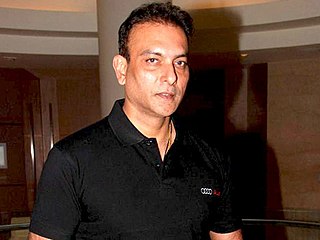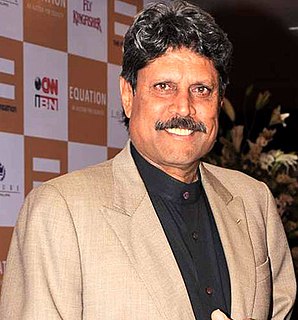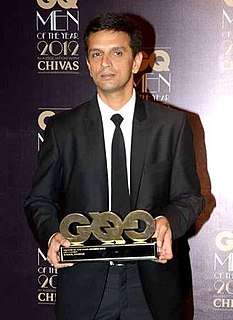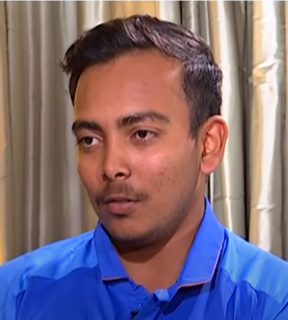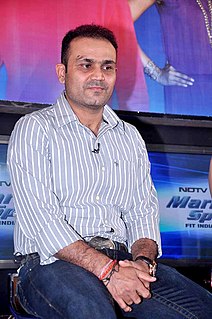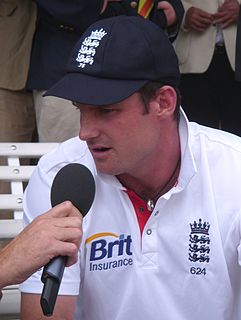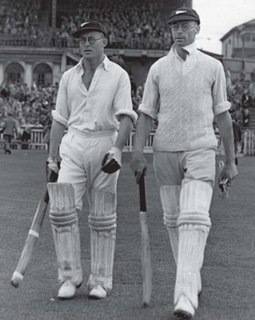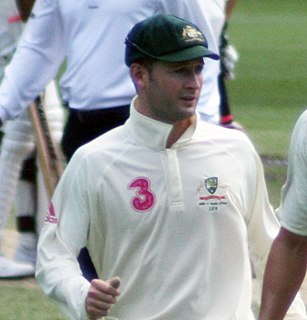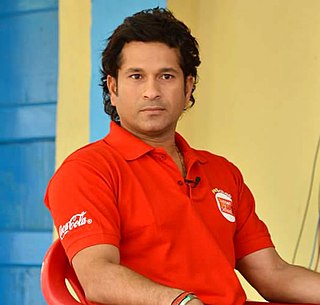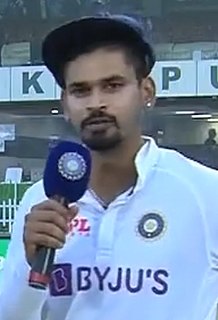A Quote by Glenn McGrath
It's the games you lose or struggle in that you learn most from in Test cricket.
Related Quotes
From an England point of view they have put money into white-ball cricket because our performances in World Cups has not been good enough, I understand the reasons for that. But we have to be careful not to go too one-day, we have to find a balance because there is such a legacy of Test cricket in this country and we can't lose that.
From a spectator point of view, Test cricket is not important; people hardly watch Test cricket. But as a player, Tests are the real thing. You have to concentrate for five days. It's a lot of time, and not easy to do it day in and day out. If people have played 70-100 Tests, it's a lot of cricket, a lot of concentration and dedication.
When I was growing up, I played a lot of ten- and 12-over games, and I would bat in the middle order. I got only ten-odd balls to face, and I tried to score as much as I could. I applied the same approach in domestic and international cricket, and people were appreciating my strike rate being more than 80 or 90 in Test cricket.

